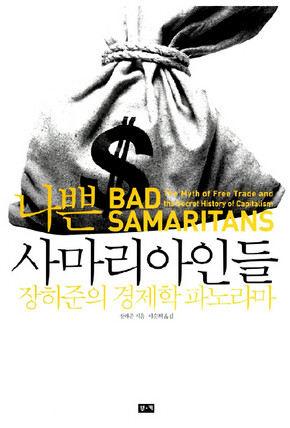hankyoreh
Links to other country sites 다른 나라 사이트 링크
Military expands book blacklist

It was discovered that the Ministry of National Defense has labeled books about culture and best-sellers as “seditious publications” and taken them off the shelves. Military authorities instructed the army to block distribution of dangerous documents by requiring that all mail be opened in the presence of a military officer.
According to an official document from the Air Force Chief of the General Staff obtained by The Hankyoreh on July 30, Air Force Headquarters instructed military units on July 24 to check whether or not subversive books were brought in and to report the results to higher units by August 11. Action was taken following an order given by Defense Minister Lee Sang-hee on July 19, the document said.
In the instructions, the Air Force states that “seditious books” can hinder soldiers’ concentration and suggested a list of 23 books to be banned in three categories: pro-Pyongyang, anti-government and anti-U.S., and anti-capitalism.
The blacklist also contained a considerable number of books written by internationally-recognized scholars, books about culture, ordinary literature and books on the best-seller list. “Bad Samaritans: The Myth of Free Trade and the Secret History of Capitalism,” written by Ha-Joon Chang, a professor at the University of Cambridge, is a best-seller that was selected as one of the 10 best books of the year by many media companies. Hyeon Gi-yeong's novel “A Spoon on Earth” was classified as pro-North Korea and “Year 501: The Conquest Continues” by Noam Chomsky was classified as anti-government and anti-U.S.
In order to prevent books classified as “seditious” from coming into the military, the Air Force suggested that the presence of such books immediately be reported to defense security units, that goods brought in by soldiers returning to the military after vacation be examined and that all mail be opened by the recipient in the presence of an officer. The Air Force also included in its list books that were selected as good publications by the Ministry of Culture and Tourism and took them off the shelves in 2007.
An officer who asked to remain anonymous said, “It is unusual that such an instruction was given through the ordinary chain of command, not through the Defense Security Command.”
Regarding this, the Defense Ministry said, “When a book is published, we judge whether or not the book contains anti-government content according to the National Security Law. Under military service regulations, soldiers can’t have seditious publications.”
Please direct questions or comments to [englishhani@hani.co.kr]
Editorial・opinion
![[Column] Season 2 of special prosecutor probe may be coming to Korea soon [Column] Season 2 of special prosecutor probe may be coming to Korea soon](https://flexible.img.hani.co.kr/flexible/normal/500/300/imgdb/original/2024/0426/3317141030699447.jpg) [Column] Season 2 of special prosecutor probe may be coming to Korea soon
[Column] Season 2 of special prosecutor probe may be coming to Korea soon![[Column] Park Geun-hye déjà vu in Yoon Suk-yeol [Column] Park Geun-hye déjà vu in Yoon Suk-yeol](https://flexible.img.hani.co.kr/flexible/normal/500/300/imgdb/original/2024/0424/651713945113788.jpg) [Column] Park Geun-hye déjà vu in Yoon Suk-yeol
[Column] Park Geun-hye déjà vu in Yoon Suk-yeol- [Editorial] New weight of N. Korea’s nuclear threats makes dialogue all the more urgent
- [Guest essay] The real reason Korea’s new right wants to dub Rhee a founding father
- [Column] ‘Choson’: Is it time we start referring to N. Korea in its own terms?
- [Editorial] Japan’s rewriting of history with Korea has gone too far
- [Column] The president’s questionable capacity for dialogue
- [Column] Are chaebol firms just pizza pies for families to divvy up as they please?
- [Column] Has Korea, too, crossed the Rubicon on China?
- [Correspondent’s column] In Japan’s alliance with US, echoes of its past alliances with UK
Most viewed articles
- 1[Column] Season 2 of special prosecutor probe may be coming to Korea soon
- 2‘We must say no’: Seoul defense chief on Korean, USFK involvement in hypothetical Taiwan crisis
- 3N. Korean delegation’s trip to Iran shows how Pyongyang is leveraging ties with Moscow
- 4Amnesty notes ‘erosion’ of freedom of expression in Korea in annual human rights report
- 5[Editorial] Korea’s surprise Q1 growth requires objective assessment, not blind fanfare
- 6Division commander ordered troops to enter raging flood waters before Marine died, survivor says
- 7[Reportage] On US campuses, student risk arrest as they call for divestment from Israel
- 8Korea sees more deaths than births for 52nd consecutive month in February
- 9Is N. Korea threatening to test nukes in response to possible new US-led sanctions body?
- 10Is Japan about to snatch control of Line messenger from Korea’s Naver?